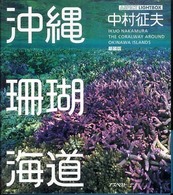- ホーム
- > 洋書
- > 英文書
- > Politics / International Relations
Full Description
An extensive body of literature on Indigenous knowledge and ways ofknowing has been written since the 1980s. This research has for themost part been conducted by scholars operating within Westernepistemological frameworks that tend not only to deny the subjectivityof knowledge but also to privilege masculine authority. As a result,the information gathered predominantly reflects the types of knowledgetraditionally held by men, yielding a perspective that is at oncegendered and incomplete. Even those academics, communities, andgovernments interested in consulting with Indigenous peoples for thepurposes of planning, monitoring, and managing land use have largelyignored the knowledge traditionally produced, preserved, andtransmitted by Indigenous women. While this omission reflectspatriarchal assumptions, it may also be the result of the reductionisttendencies of researchers, who have attempted to organize Indigenousknowledge so as to align it with Western scientific categories, and ofpolicy makers, who have sought to deploy such knowledge in the serviceof external priorities. Such efforts to apply Indigenous knowledge havehad the effect of abstracting this knowledge from place as well as fromthe world view and community—and by extension the gender—towhich it is inextricably connected.
Living on the Land examines how patriarchy, gender, andcolonialism have shaped the experiences of Indigenous women as bothknowers and producers of knowledge. From a variety of methodologicalperspectives, contributors to the volume explore the nature and scopeof Indigenous women's knowledge, its rootedness in relationshipsboth human and spiritual, and its inseparability from land andlandscape. From the reconstruction of cultural and ecological heritageby Naskapi women in Québec to the medical expertise of Métis women inwestern Canada to the mapping and securing of land rights in Nicaragua,Living on the Land focuses on the integral role of women as stewards ofthe land and governors of the community. Together, these contributionspoint to a distinctive set of challenges and possibilities forIndigenous women and their communities.
Contents
Acknowledgements
Introduction: Indigenous Women and Knowledge - IsabelAltamirano-Jiménez and Nathalie Kermoal
1 Distortion and Healing: Finding Balance and a "GoodMind" Through the Rearticulation of Sky Woman's Journey -Kahente Horn-Miller
2 Double Consciousness and Cree Perspectives: Reclaiming IndigenousWomen's Knowledge - Shalene Jobin Vandervelde
3 Naskapi Women: Words, Narratives, and Knowledge - Carole Lévesque,Denise Geoffroy, and Geneviève Polèse
4 Mapping, Knowledge, and Gender in the Atlantic Coast of Nicaragua- Isabel Altamirano-Jiménez and Leanna Parker
5 Métis Women's Environmental Knowledge and the Recognition ofMétis Rights - Nathalie Kermoal
6 Community-Based Research and Métis Women's Knowledge inNorthwest Saskatchewan - Kathy L. Hodgson Smith and NathalieKermoal
7 Gender and the Social Dimensions of Changing Caribou Populationsin the Western Arctic - Brenda Parlee and Kristine Wray
8 "This Is the Life": Women's Harvesting, Fishing,and Food Security in Paulatuuq, Northwest Territories - Zoe Todd
Notes
List of Contributors








